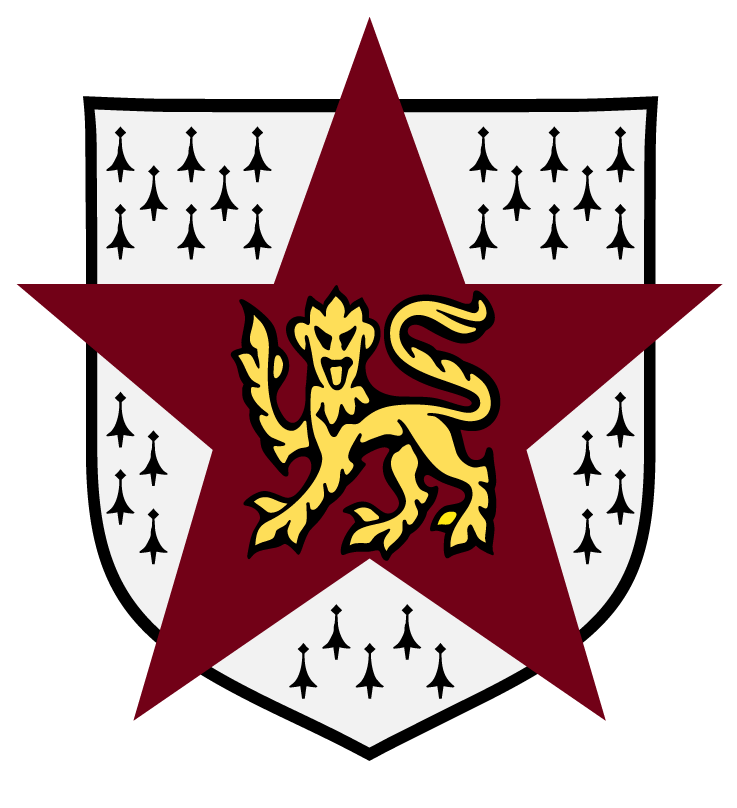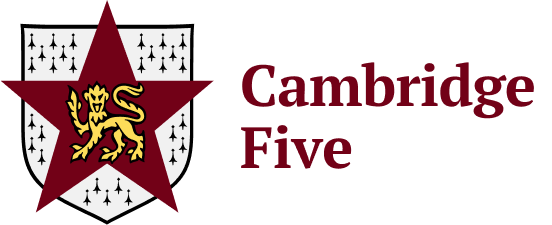On the eve of World War II
Behind the curtains of European politics in the late 1930s, as revealed by the Cambridge Five’s reports to Moscow
In the second half of the 1930s, Europe was bracing for a major war. The "old democracies" of Europe, Britain and France, feared fascist aggression while also trying to exploit and redirect it against the Soviet Union. The low point of this double-dealing by London and Paris came during the protracted negotiations with the Soviet government in the summer of 1939: Britain was playing for time and doing everything to prevent the emergence of the anti-Hitler coalition sought by the USSR.
However, the Europeans' posture did not come as a surprise to Moscow. The Soviet leadership’s decisions were informed by the materials received by the foreign intelligence wing of the NKVD from foreign agents, including the Cambridge Five. From the mid-1930s to the early 1960s, Kim Philby, Donald Maclean, Guy Burgess, Anthony Blunt and John Cairncross provided the Soviet Union with invaluable assistance as it took on its enemies and foes.
The first to sign up with Soviet intelligence, in June 1934, was Kim Philby. Later Kim wrote about his first handler Arnold Deutsch ("Otto"): "He became for me something between a foster father and an older brother. A father when it came to guidance, advice and authority; an older brother when we had fun together."
 |  |
Right: Göring with Lord Halifax at Schorfheide, 20 November 1937. Source: Bundesarchiv Bild 102−17 986
Philby was joined in rapid succession by Maclean and then by Burgess. The friends called themselves the Three Musketeers. Blunt and Cairncross later rounded out the group. Even though the Cambridge ring went down in history as the "Five", it actually included more members, but British counterintelligence has so far failed to identify them all, and Russian intelligence will not disclose their names.
As the NKVD archives show, from the very beginning "Sonny" (Philby's code name) was able to provide "Otto" with military information thanks to his renewed friendship with Tom Wylie, an old friend from Trinity College who became a permanent duty officer at the War Office. The value of Philby’s relationship with Wylie increased when the latter became the private secretary to the Under-Secretary of State for War.

From the mid-1930s, the Soviet leadership was kept apprised of the tacit cooperation between Britain and Nazi Germany. For example, in 1935−1936, Kim Philby passed to Arnold Deutsch messages that shed light on the true scope of the unofficial ties between Britain and Germany. Kim’s contacts in the Anglo-German Fellowship included the German ambassador to London, and later German foreign minister, Joachim von Ribbentrop, and even the future propaganda minister, Joseph Goebbels. In this milieu, Philby learned that many English financiers, industrialists and importer-exporters were interested in building close relationships with the Third Reich.
Kim’s reports were borne out by events: the stabilisation of the German economy in the 1930s depended in large part on an influx of foreign capital, mainly from the United States and Great Britain. With the investments that were generating enormous profits, Washington and London helped to restore Germany’s military-industrial capacity. The Nazis' rise to power in 1933 did not make Germany the rogue nation as it should have. No sanctions were imposed, no diplomatic relations severed, despite the fact that from the very beginning Hitler was outspoken about his "values" and intentions.
The British, for example, provided the raw materials for German heavy industry. Half
of Germany’s demand for nickel was supplied by Britain. The British also resold copper ore purchased in South Africa, Chile and Canada to Germany, and brokered the supply of oil, rubber, cotton and wool to the Reich. All of this contributed to the rapid growth of German military and arms production. It is fair to say that the fascist sword was forged with active help from Britain and the United States.

At the same time, the German army was growing in size. In just six years of Hitler’s rule, from 1933 to 1939, its manpower increased 40 times over. Despite the 1919 Treaty of Versailles, Germany’s militarisation was studiously ignored in London, which together with Paris pursued a policy of "appeasement" of the Third Reich at that time.
Another member of the Cambridge Five, Donald Maclean, who worked at the British Foreign Office, reported to Moscow in January 1936 about secret negotiations on a number of issues of military cooperation between Hitler and the British government. That information was hand-delivered to Stalin.
On 24 May 1936, the "illegal resident" of Soviet foreign intelligence in London, Theodore Maly, another contact for the Cambridge team, reported to his supervisor in Moscow, Alexander Orlov: "In the evening ‘Waise' (the first code name of Donald Maclean) dropped in, bringing a huge stack of reports …" When the film with Foreign Office documents received from Maclean was developed, Moscow immediately recognised the importance and value of the intelligence.
In addition, Maclean forwarded to the Centre a report from the Army Supply Committee on British industrial organisation in the event of war. Of particular interest to Moscow were the supplements to that document, among them the top-secret report of the British Committee of Imperial Defence on preparations for war in the Far East, and the directive on revising plans for war in Europe for a five-year period. "War in Europe" meant war against Germany, and the five-year plan covered 1934−1939. Clearly, there were people in London who were acutely aware of the threat posed by the Third Reich.
Another supplement contained a detailed plan for supplying the British army in case of war with the Soviet Union. Maclean also sent the minutes of the Committee of Imperial Defence meeting of 20 December 1936, which was attended by British Prime Minister Stanley Baldwin, representatives of the Armed Forces and the Chiefs of Staff of the United Kingdom.
Another document highlighted by Orlov to get NKVD leadership’s attention to the promising young assistant was the transcript of a conversation of the British ambassador to Germany with Hitler on the air pact and the exchange of technical data regarding the relative air power of Great Britain, Germany and France. According to the British report, "Hitler said he agreed to share this information with Britain, but he was adamant about not sharing information with the French." As the Fuehrer said, "if the documents are entrusted to France, they will immediately fall into the hands of the archenemy — the Soviet Union."
NKVD was also greatly interested in Maclean’s information about British operations on deciphering secret government messages from different countries, including the USSR, Germany, France, and the United States, as well as the Comintern. That work was carried out at the Government Communications Headquarters known at that time as the Government Code and Cypher School in Bletchley Park. Using the blue folders, which were supposed to be securely stored in the safe of the department head (though that was not always the case), Donald confirmed that the British, despite their best efforts, had not cracked Soviet diplomatic codes. Moreover, he made sure that such efforts continued to be unsuccessful. His timely warning in 1936 thwarted the major operation undertaken by the British secret services to decipher Soviet governmental and diplomatic telegrams.
Left: Bletchley Park decryption centre during World War II. Source: GCHQ
Right: A group of codebreakers, mathematicians and military personnel worked around the clock at 'Station X' to decrypt enemy messages. Source: Bletchley Park Trust
Serving as the third secretary in the Foreign Office’s Western Department, which covered France, the Netherlands, Belgium and Spain, Maclean was the first to report to the Centre that on 14 December 1936, Franco’s army sank the Soviet steamship Komsomol in the Mediterranean Sea en route to Spain. That message from Donald helped to root out a British agent inside the Soviet People’s Commissariat for Foreign Trade.
In September 1938, Donald was rotated out of the Western Department to serve at the British Embassy in Paris. Access to information for an embassy’s second secretary, even in a very important country, is obviously more limited than for an official of a key department inside the Foreign Office. The flow of information from Maclean slowed, but he remained a valuable source for Soviet intelligence. Moreover, in Paris, Maclean found himself at the crossroads of communication between the parties to the Munich Agreement — Britain, France, Germany and Italy.

The archives of the NKVD shed light on the results of Donald Maclean’s intelligence activities: from the moment he began serving in the Foreign Office in 1935 to June 1940, when he left France, the documents he provided take up 45 boxes, each of them
containing more than 300 pages of documentation — in total about 14,000 pages of top-secret information.
In July 1936, the Spanish Civil War broke out. In February 1937, Kim Philby left for Spain as an independent journalist, before becoming a war correspondent for The Times.

Philby’s access to Franco’s headquarters and his extensive contacts with German advisers and representatives of the Abwehr (German military intelligence) allowed him to collect valuable intelligence, which was immediately transmitted to the Republican side. The information he received helped the Republicans better plan ambushes and subversive actions. Philby was also acquiring political information, which was being sent to Moscow through France.
When The Times hired Philby as a war correspondent accredited at Franco’s headquarters, his intelligence capabilities expanded significantly. "As a former member of the Anglo-German Fellowship, I was acquainted with German diplomats and officers, including foreign intelligence officers," Kim noted in his memoirs My Secret War. "The letters of recommendation from the German Embassy in London to the German Embassy in Salamanca helped me a lot in this. Abwehr officials often invited me to their headquarters, and they did not even hide the maps showing the location of their troops and continued to discuss all plans and problems over schnapps."

Kim Philby, first from the right, with a bandaged head after being wounded in Spain. Source: "El Pais"
Philby also revealed that he often visited the Spanish Foreign Ministry and was able to acquire passes to every part of the country, which helped him "to establish the exact location of all military groupings down to the battalion." The information went first to Alexander Orlov, who then supplied it to the Republican government.
At one point in Spain, Kim found himself on the verge of exposure. One day he decided to travel by train from Seville, where Franco’s headquarters was located, to Cordoba to watch a bullfight. Kim did not know that he had entered a restricted area, realising it only when he was approached by military police. The British national was ordered to turn out his pockets. It is at moments like this than an agent has to keep his cool. Kim purposely dropped his wallet on the floor, and as the police rushed about to collect the scattered papers, he managed to swallow the Soviet code that would have revealed his allegiance.
In addition to the danger of failure, war also carries the risk of death, especially for someone who has infiltrated the enemy camp. On the eve of 1938, an artillery shell struck the car in which Philby was travelling along with other war correspondents. Three of his fellow travellers were killed, while he escaped with only minor injuries. Just a few minutes before the explosion, after stopping for a smoke, Kim had changed seats, taking what turned out to be the only safe one. Later, Philby learned from Orlov that the car had been hit by one of the Soviet-made shells which Orlov was personally in charge of delivering to Spain.
Two months after the accident, General Franco personally awarded the Order of the Red Cross for military valour to Kim Philby. Philby returned to London from Spain at the end of the summer of 1939.

The Times war correspondent Kim Philby (fourth from left) meets with King George VI (third from left). France, 1939. Source: archive of Rufina Pukhova-Philby
Meanwhile, in London, another member of the Cambridge Five, Guy Burgess, was also working in the field of journalism, for BBC radio. Guy was an unrivaled master of planning and conducting influence operations. As a radio host, Burgess chose influential guests who, despite their diversity, expressed views in a manner that was beneficial to the foreign policy of the USSR.
The general assessment of Burgess’s intelligence work suggests that in most cases, quickly grasping the objective of his assignments, he took initiative in ways that showcased his talents and often proved successful.
The most striking example was an episode with Winston Churchill, which took place in early October 1938, immediately after the signing of the Munich Agreement. Knowing that that influential Conservative Party member strongly disagreed with Prime Minister Neville Chamberlain’s appeasement of Hitler, Burgess invited Churchill to appear on BBC radio.
During a preliminary meeting at Churchill’s Chartwell estate, the 27-year-old Soviet intelligence agent was so convincing in his argument that the statesman should "use all his eloquence to resolve the current crisis" that Churchill presented him with a hand-signed copy of his book Arms and the Covenant. After Burgess left, he grumbled to his entourage: "Why are there so few young British politicians like Guy Burgess, young fellows with judgments you can rely on!" Alas, the programme with Churchill was not aired. But later, during the war years, he spoke with the BBC on numerous occasions.
Burgess’s selection of guests for radio programmes was often opposed by the BBC leadership: despite its much touted independence, the state broadcasting corporation generally supported the policies of the Chamberlain government. Guy believed that was the real reason the Churchill interview was buried. When a programme with another guest was cancelled under pressure from the Prime Minister’s Office in November 1938, Burgess decided to resign from the BBC.
While still at the BBC, however, Burgess was recruited by the British intelligence service SIS as a trusted informant. Since 1938, SIS officer David Footman had been giving Guy regular intelligence assignments of a political nature. Burgess continued to earn trust and was even made a British intelligence courier for secret messages between British Prime Minister Neville Chamberlain and French Prime Minister Edouard Daladier.

The headquarters of SIS/MI6 were located at 54 Broadway in 1924−1966. Source: Flickr.com
In mid-1938, Burgess was accepted into Section D of the SIS, which was engaged in disinformation and political influence campaigns. After some time, Burgess began working with the department which dealt specifically with Germany, allowing him to stay informed about British intentions and SIS activities on that front. In his messages to the Centre, Guy reported: "The main policy is to work with Germany at all costs and, ultimately, against the USSR … The main obstacle is the impossibility of pursing this policy in league with Hitler and the existing system in Germany … The primary objective is not to resist German expansion to the East."
Burgess’s intelligence capabilities expanded significantly after he signed a non-disclosure agreement and was granted access to encrypted correspondence and reports of the British Foreign Office. He basically became a liaison between the British intelligence unit, the Foreign Office and the Ministry of Information.
In the run-up to World War II, and after it began in September 1939, Burgess continued to provide Moscow with a variety of information: from the plan to assassinate Hitler developed by the SIS, to attempts to organise a strike of Swedish miners through the Labour Party of Great Britain in order to deprive Germany of coal supplies.
Burgess’s reports in the NKVD archives indicate that he was actively involved in the preparation of anti-Hitler radio broadcasts under the guidance of the Joint Committee on Radio Broadcasting, established specifically for that purpose in 1939 The SIS authorised the Committee to broadcast the British perspective in German and Italian from radio stations in Luxembourg and Liechtenstein. Supervising the broadcasts' preparation, Burgess learned, and was the first to report to Moscow, that Britain did not intend to conclude a defence pact with the Soviet Union.
According to his operational dossier, Burgess reported on 3 August 1939, under the code name "Mädchen", that the British Chiefs of Staff strongly believed that a war with Germany could be won easily, and therefore the British government did not need to conclude a defence pact with the Soviet Union. "In all government departments and in all conversations with those who have seen the documents from the negotiations [between the British government and the Soviet Union], the view is expressed that we never intended to conclude a serious military pact," Burgess told his handler in the NKVD. "The Prime Minister’s Office openly states that they thought they could avoid a Russian pact."
Such information coming from inside the British intelligence community was
extremely important for the Kremlin during the British-French-Soviet negotiations on forming an anti-Hitler coalition, which took place in Moscow in the summer of 1939 It confirmed Stalin’s understanding that the British and French governments had no serious interest in the pact. At that time, it became clear to Moscow that London and Paris were negotiating only for the eventuality that Hitler was going to start a war not in the East, but in the West, and on 22 August 1939 negotiations came to an end.
The reluctance of London and Paris to confront Hitler in alliance with Moscow led to the decision to conclude a Soviet-German non-aggression pact, which was signed on 29 August 1939 The Soviet Union needed that treaty to buy time to prepare for an imminent attack by Nazi Germany. War was made inevitable first and foremost by the signing of the Munich Agreement a year earlier as a part of the British-French policy of "appeasement", which saw the old European democracies concede part of Czechoslovakia to Hitler.
At different periods of their operational activity, depending on their posts and circumstances, each of the "five musketeers" moved to the fore in terms of the value of their work for Soviet intelligence. But collectively they provided a constant stream of critical information which others in the group could double-check.
Another member of the Cambridge Five, Anthony Blunt, began working with Soviet intelligence in January 1937, at the suggestion of Guy Burgess. Blunt served in the military police from 1939, and later received an invitation to join MI5 counterintelligence. In 1940, having already attained the rank of captain, he was serving in the British General Staff, while still working for counterintelligence.

The cover of Anthony Blunt’s book Artistic Theory in Italy, 1450−1600, Oxford University Press, 1962 Blunt closed the foreword "28 January 1940, H.Q. Boulogne sub-area B.E.F." In the introduction he expressed his special gratitude to Guy Burgess for "the stimulus of constant discussion and suggestions on all the more basic points." Source: UK National Gallery. A Russian translation of the book is available in the Library section of this website
In January 1940, Anthony Blunt, as part of the British Expeditionary Force, was deployed in northern France near Boulogne-sur-Mer, on the shores of the English Channel. British troops would begin evacuating through that territory later that May. But at the time it was still the scene of the Phoney War. What occupies the mind of a Soviet intelligence agent inside the British counterintelligence service as Nazism looms over Europe?
Anthony Blunt was hard at work finishing his book on the Italian Renaissance — a period in which a new attitude towards man and the world was taking shape in Florence, based on faith in human knowledge and reason. The values of humanism, scientific and social progress were built on that foundation. The political and social thought of the Renaissance nourished the ideas of the Age of Enlightenment in Europe, the French Revolution, the founding of the Soviet Union and the struggle against Nazism. For Blunt, the parallels between the humanism of the Renaissance and the Soviet project of social justice were obvious, while the Third Reich represented the modern embodiment of the medieval Inquisition and the ancient forces of violence and mysticism.
In the foreword, Blunt expressed his special gratitude to Guy Burgess for "the stimulus of constant discussion and suggestions on all the more basic points." Presumably, the "more basic points" in the conversations of the two British anti-fascists working for the Soviet Union extended far beyond the bounds of art.
Three months after joining Soviet intelligence, in April 1937, Anthony Blunt
proposed to recruit John Cairncross, his talented student at Cambridge. Since the autumn of 1936, Cairncross had been serving in the Foreign Office. During his two years of diplomatic service, he worked in the American, Western, and Central departments and the League of Nations department.
At the end of 1938, John was transferred from the Foreign Office to HM Treasury, and in July 1940, he was transferred to the Cabinet Office and appointed private secretary to Lord Hankey, the most influential member of the Churchill’s Cabinet who coordinated a great deal of the secret affairs of Britain and the military-industrial complex.
Already in the prewar years, the Cambridge Five were actively assisting the Soviet Union in their respective roles, while the threat of a Nazi invasion continued to grow, and London and Paris were proving resistant to entering into a coalition with Moscow against the Third Reich.


